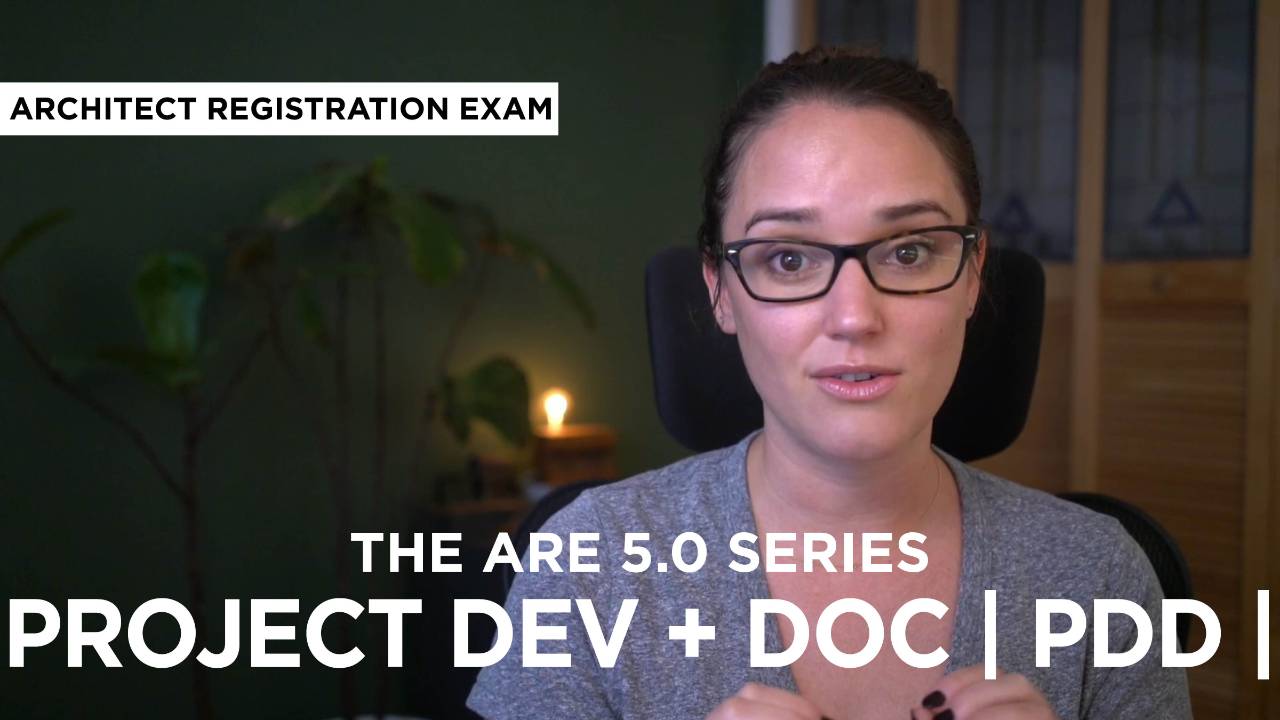ARE 5.0 Project Development & Documentation (PDD) | How to Study Smarter and Pass in 2026
Oct 07, 2025
ARE 5.0 Project Development & Documentation (PDD)
You made it!! The "final" exam in the ARE 5.0 series.
PDD is where everything comes together: structure, materials, details, systems, and the technical side of design that makes your projects actually work.
If you’re here, you’ve likely already passed (or survived) the pro-practice and other technical exams. You’ve got this far, which means you already know more than you think. Now it’s time to pull it all together and finish strong!
If this is your first time here, check out my other exam posts first so you can see how everything connects. Then come back when you’re ready to tackle PDD.
The Details
By the time you reach PDD, you’ve built up layers of knowledge from all the other exams. PDD doesn’t live in isolation — it’s the accumulation of everything before it.
If you’ve been through PcM, PjM, CE, PA, and PPD, you already have the foundation you need.
What makes PDD challenging is its depth and complexity. You’re not just identifying systems; you’re proving you understand how they come together. Think of it as the architect’s version of finals week: details, systems, integration, and codes all showing up in one long test.
Sections of the Exam
1. Integration of Building Materials & Systems (31–37%)
- You’ll need to understand how all systems interact...structure, MEP, envelope, and finishes.
- Study how heat, water, and air move through assemblies and how to control them.
A few big topics: vapor barriers (and why location depends on climate), fire ratings, wind loads, hazardous materials, and connections.
Tip: Know your R-values, U-factors, and how to calculate them. Hint: We have audio lessons on this inside the ABC Club!
2. Construction Documentation (32–38%)
- You’ll need to know how a complete drawing set fits together, and how to quickly find details in a case study.
- Practice reading construction documents so you can spot where info lives.
Common test topics:
- Wall assemblies (fire, sound, vapor)
- Curtain wall connections
- ADA basics
- Load calculations (moment, shear, expansion)
- Coefficient of expansion formula α = (ΔL / L₀) / ΔT
3. Project Manual & Specifications (12–18%)
- Specs can feel vague, so practice recognizing how they’re structured.
- Learn what’s included in a project manual and who’s responsible for each part.
- You don’t have to memorize all of MasterSpec, but get familiar with the numbering system.
Inside the ABC Club, we created practice problems and activity sheets to help you study this section effectively.
4. Codes & Regulations (8–14%)
Review minimum safety and health requirements. Know where to find information on egress, occupancy, and separation.
5. Construction Cost Estimates (2–8%)
- Understand how to compare cost options and analyze unit conversions.
- Practice questions that mix up feet, yards, and meters. You’ll see it on test day.
Study Tips & Resources
Start with NCARB’s ARE Handbook for the structure and weight of each section.
Then go deeper with the Ultimate Study Plan (USP): it tells you exactly what to study, what to skip, and when to move on.
A few key books to keep nearby:
- The Architect’s Studio Companion — systems, spans, and structure
- Building Construction Illustrated — critical for details and assemblies
- Architect’s Handbook of Professional Practice (AHPP) — for project manuals and practice topics
If you want a complete roadmap that takes the guesswork out of what, when, and how to study for every exam, explore the Ultimate Study Plan (USP).
Common Mistakes & What I Wish I Knew Before Taking PDD
-
Trying to memorize everything
PDD isn’t about recall. It’s about understanding why materials, systems, and codes work the way they do. -
Ignoring real-world details
If you’ve never looked closely at flashing, insulation, or connections, get out on site. Details are what this exam is all about. -
Skipping practice problems
The best way to pass is to test yourself often. Inside the ABC Club, you’ll find interactive tools and practice sets to help you do just that. -
Studying without structure
This exam covers everything. Without a plan, you’ll waste time. The USP and ABC Premium were built to keep you focused, consistent, and sane. -
Letting test anxiety win
By now, you know this game. If anxiety still hits, revisit your mindset. The Mind Over ARE™ program inside ABC Club Premium will help you stay calm, clear, and confident from start to finish.
Final Thoughts
PDD can feel like a mountain, but it’s also the most rewarding. Once you get through this one, you’re done.
You’ve already built the foundation through the other exams. Now, it’s just about integrating it all.
Start with a solid plan, stay consistent, and remember: you’ve got this!!
Explore more:
-
Join the ABC Club – your complete ARE® study system and community.
-
Join ABC Club Premium – includes Mind Over ARE™, study calls, and replays.
-
Get the Ultimate Study Plan (USP) – your exact roadmap to passing every division.
-
Download your Free ARE Resource Guide – curated tools, books, and study tips to help you pass.
